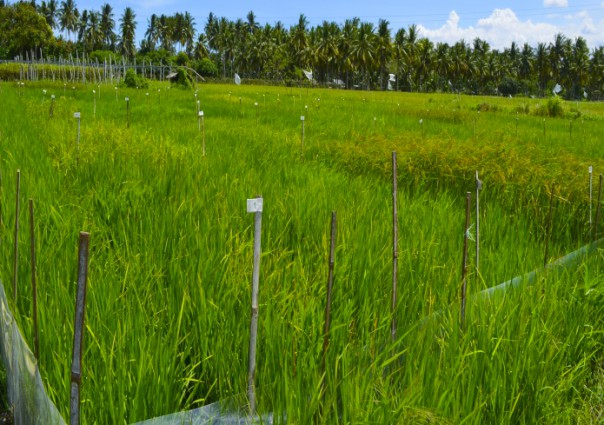 A PhilRice Midsayap study conducted in General Santos City has found that Tubigan 22 (NSIC Rc240) can yield an average of 7.07 t/h, which is higher than its 6.4 t/ha average yield at the national level.
A PhilRice Midsayap study conducted in General Santos City has found that Tubigan 22 (NSIC Rc240) can yield an average of 7.07 t/h, which is higher than its 6.4 t/ha average yield at the national level.
Of the 29 released varieties tested, Tubigan 22 was the best-performing variety as it had the highest spikelet fertility and highest number of filled grains and spikelets per panicle. These traits are among the indicators of a high-yielding variety.
According to Aldrin Y. Cantila, study lead, this variety is recommended across the country for all climate types. While the results of the study confirm that the variety is highly adaptable, a separate study is necessary to determine the soil types that will best match the variety for optimum yield.
“The variety could be a good source of genes for rice improvement specific for the rice growing conditions at General Santos City,” he adds.
Two inbred varieties are commonly used in Gensan: NSIC Rc158 (Tubigan 13) and Rc222 (Tubigan 18). Both mature earlier than Tubigan 22 (116 days)—although its yield is lower than Tubigan 22 at 6 t/ha.
Tubigan 22 has an average yield of 6.4 t/ha when transplanted and 5.8 t/ha with direct-seeding. This variety has 115 days of maturity and moderately resistant to blast.
The study was funded by DA-Regional Field Office 12 in support to PhilRice Midsayap’s goal on the identification of location-specific varieties with high-yielding and climate-resilient traits.




